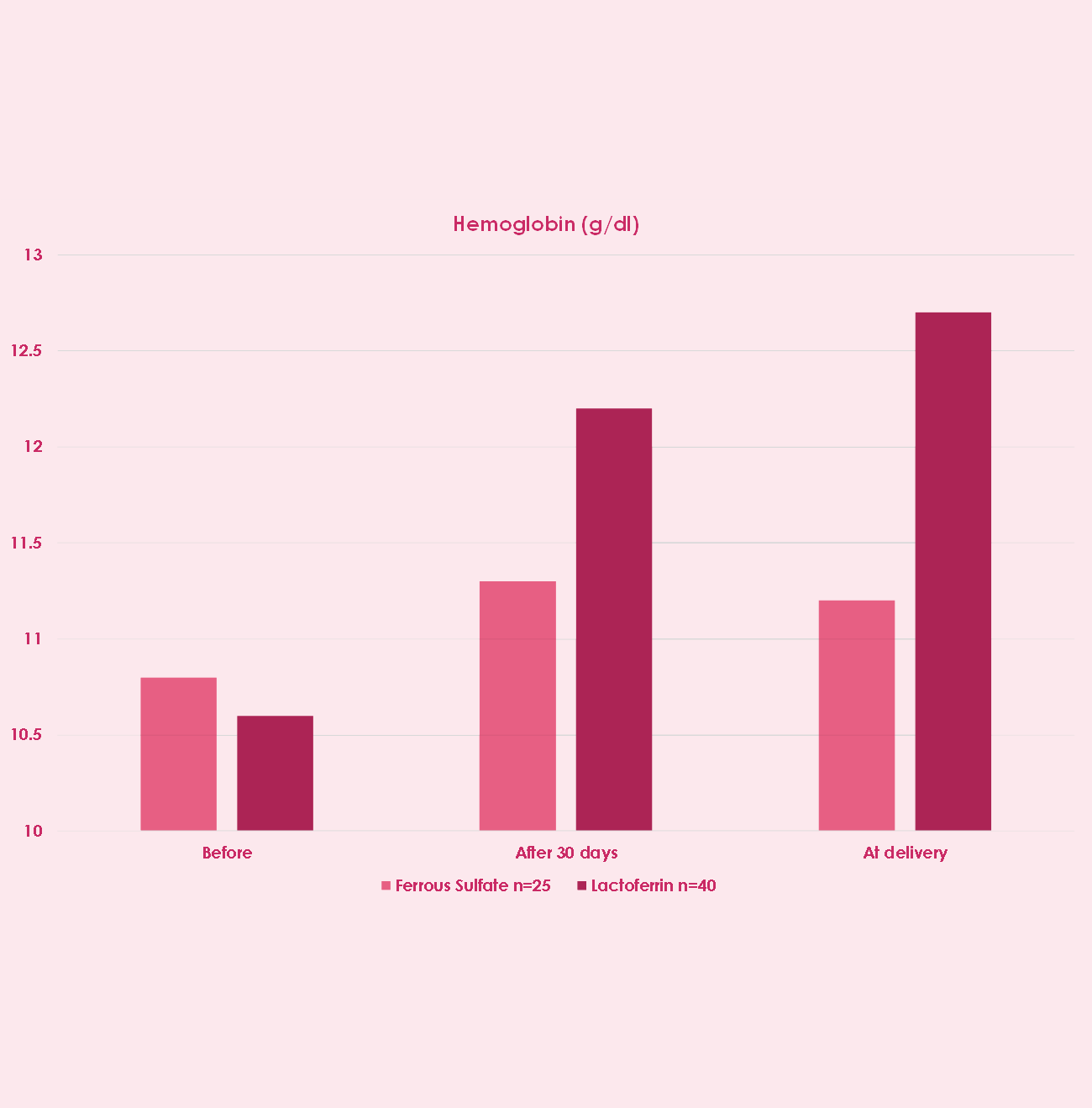Lactoferrin in pregnancy offers an exciting approach to correcting iron deficiency early in pregnancy and has been shown to actively reduce nausea, constipation and gastrointestinal discomfort versus supplementation with some forms of iron.
Emerging research links the use of lactoferrin in pregnancy in reducing the incidence of low birth weights and preterm delivery.
To date over 8 clinical studies in both pregnant and non-pregnant women, as well as infants, have been conducted investigating the efficacy of lactoferrin compared to ferrous supplements.
Lactoferrin shows greater benefits and efficacy in the management of anemia than standard ferrous sulphate
An interventional study by Lepanto et al. in 2018 compared the efficacy of cow’s milk lactoferrin (bLf) treatment versus the worldwide standard “ferrous sulphate”, in the management of anemia and anemia of inflammation in pregnant and non-pregnant women, affected by minor a predisposition to blood clots known as hereditary thrombophilia (HT).
The study enrolled 70 anemic HT pregnant women between the 6th and 8th week of gestation. The women selected treatment based on personal preference. Those in the lactoferrin group received one capsule containing 100mg of lactoferrin two times a day. The other group received 329.7mg of ferrous sulphate once a day.
HT pregnant women treated with lactoferrin showed a significant increase of red blood cells, haemoglobin and total serum iron at 30 days and at delivery. The women in the lactoferrin group also demonstrated a significant reduction in iron transport inhibitor, hepcidin (P < 0.05).
The pregnant women treated for 30 days through to delivery with ferrous sulphate observed no significant difference in any parameter.


For more information: Efficacy of Lactoferrin Oral Administration in the Treatment of Anemia and Anemiaof Inflammation in Pregnant and Non-pregnant Women: An Interventional Study. Lepanto et al. Front. Immunol., 21 September 2018

